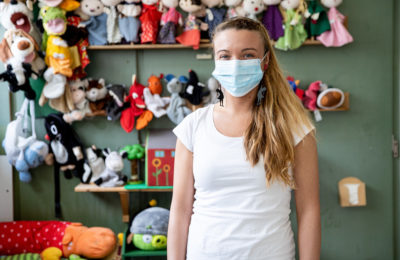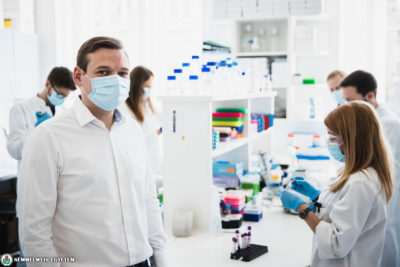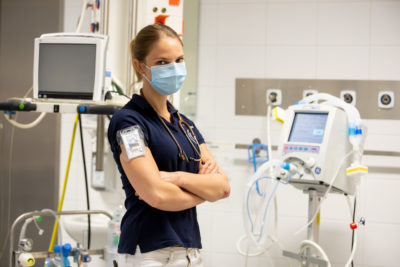The work of the staff at Semmelweis University’s Central Dispatcher and Patrol Service has also been affected by the coronavirus.
“We are responsible for order and security at the university and we had to get used to the unusual circumstances just like visitors and staff at the departments.”, said Győző Lehoczky, patrolman.
In our series we are presenting the changes that the epidemiological situation has brought upon the lives of the university staff working in different areas.
The Central Dispatcher and Patrol Service is responsible for supporting Semmelweis University’s reception services, thus indirectly for protecting its property. They also monitor hundreds of university alarms, access- and video surveillance systems located in the different buildings of the university.
“We are notified if someone would like to enter a hospital or a building that does not receive visitors during a period of ban on visiting. The dispatcher receives the call and if necessary we go to the site and try to solve the problem.”, said Győző Lehoczky, patrolman.
Due to the restrictions introduced as protective measures in response to the coronavirus epidemic, buildings, entrances and exits were closed down and receptionists needed the help of the patrol services to inform visitors and staff of Semmelweis University.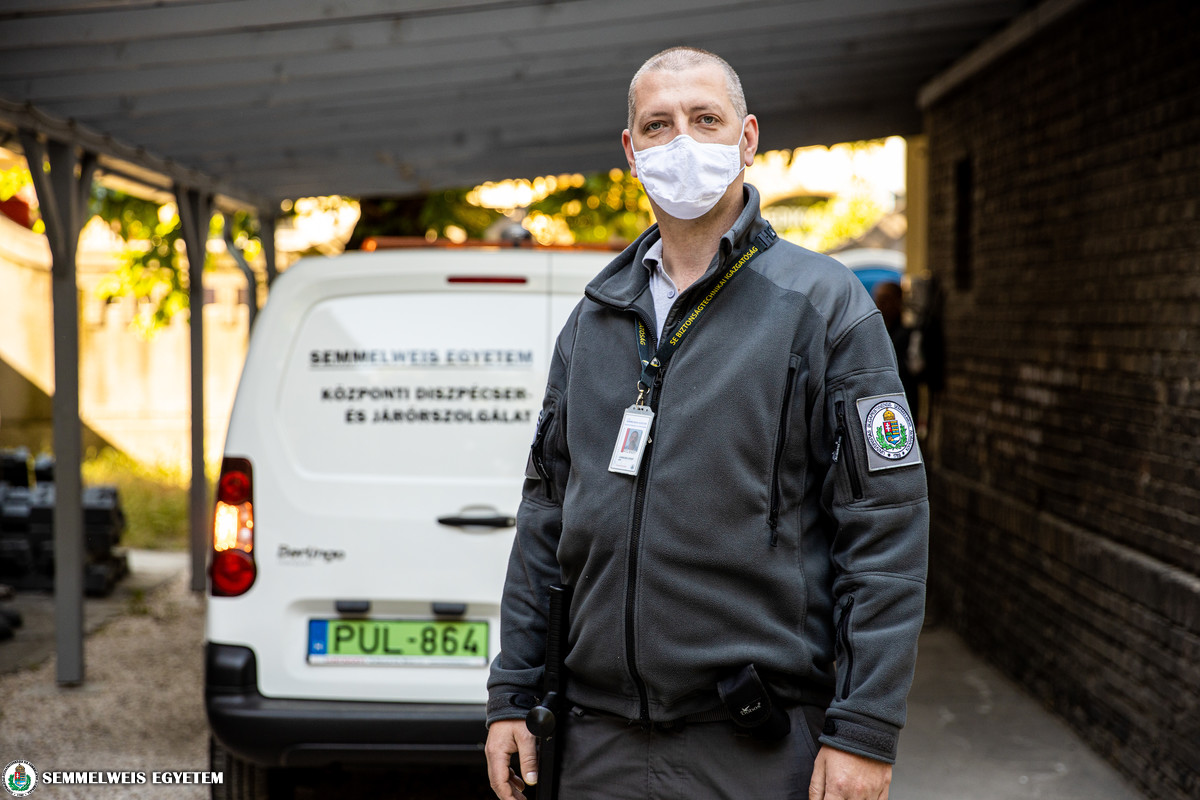
“In some cases, a gate that one might have been using for ages might now be closed due to the epidemic or people cannot leave through the exits they had got used to. When the restrictions were introduced, we had to take actions several times but by now everyone has learnt to adapt to the new circumstances.”, he said.
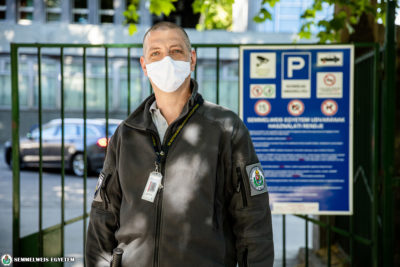 He himself had to get used to the extended scope of duties: he had to assist with COVID-19 screenings, transport or supervise medical devices and samples on several occasions. Elderly and chronic patients who did not want to leave their homes could also request screening in their homes and Győző Lehoczky and his colleagues helped transport the doctors in such cases.
He himself had to get used to the extended scope of duties: he had to assist with COVID-19 screenings, transport or supervise medical devices and samples on several occasions. Elderly and chronic patients who did not want to leave their homes could also request screening in their homes and Győző Lehoczky and his colleagues helped transport the doctors in such cases.
“Just like the doctors performing the screenings, we were also provided with adequate protective equipment so we could do our job in safe conditions.”, he said.
The epidemic did not cause major disruptions either in his work or at home: his child is in kindergarten, so there was no need for online education and his partner had the possibility to stay at home.
Ádám Szabó
Photo: Attila Kovács– Semmelweis University
Translation: Ágnes Raubinek
